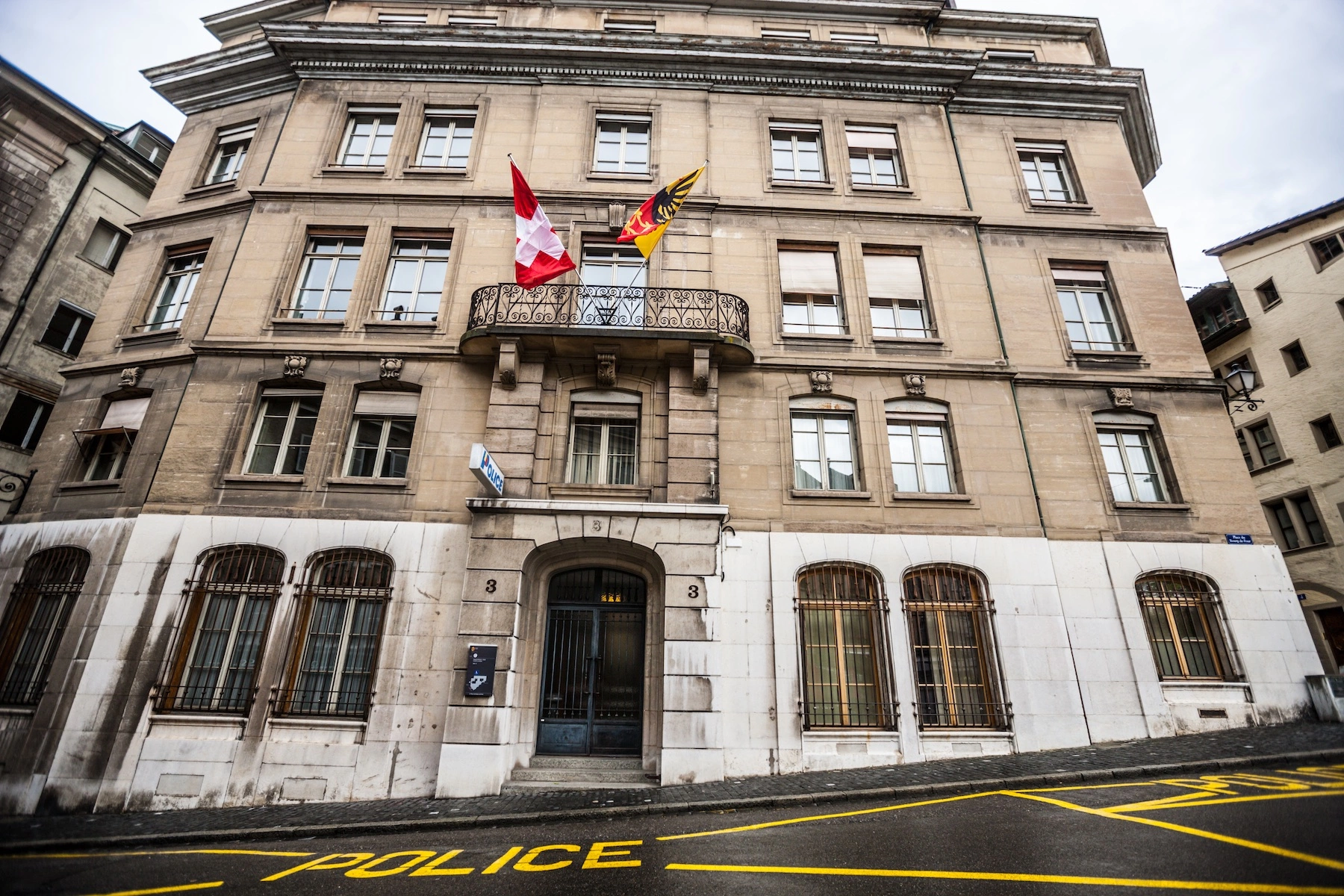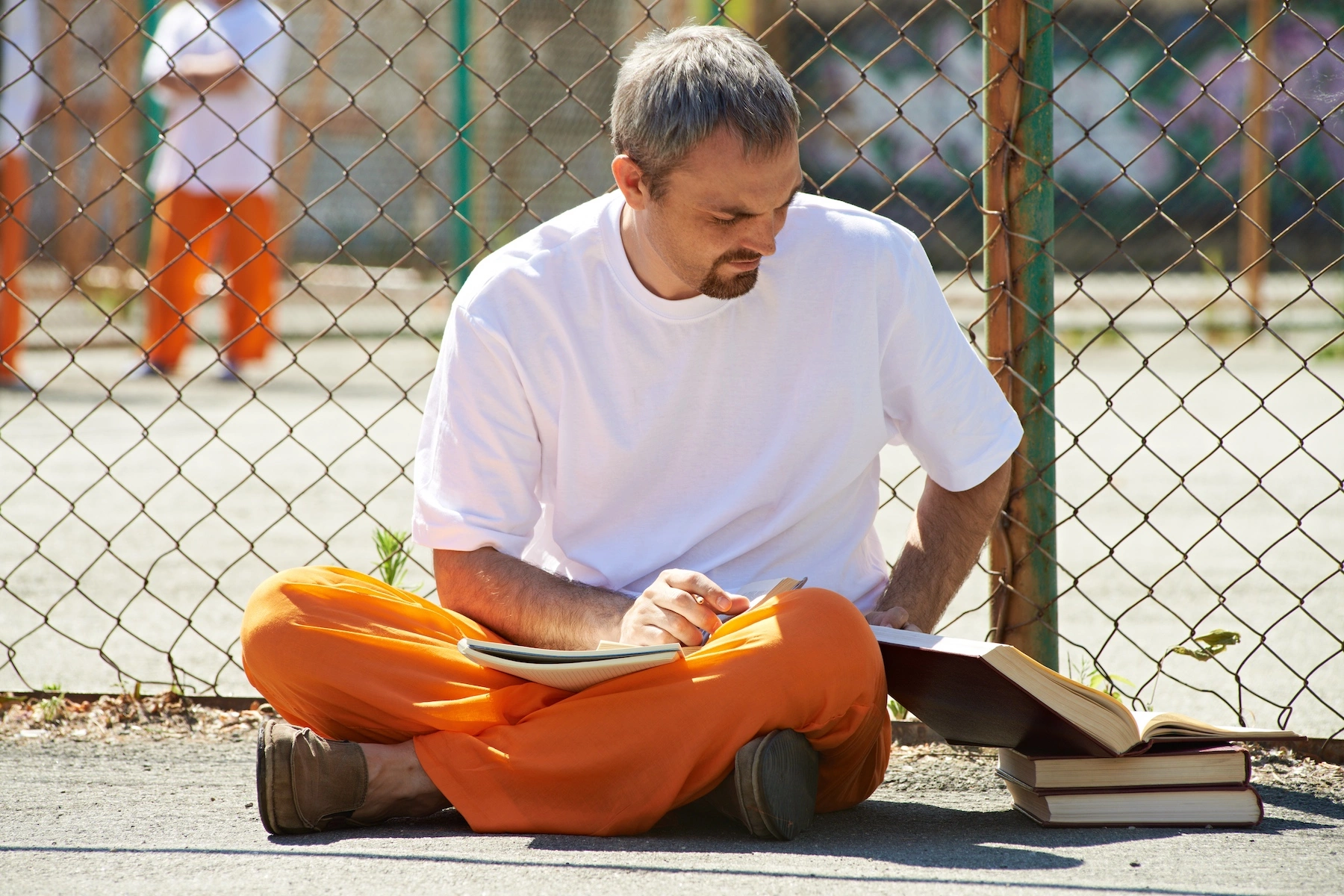If you plan to move to Switzerland, learning how its legal system works and knowing your rights as a resident is essential. Switzerland’s government has a unique legal landscape due to its federal structure. Each canton may have specific regulations and procedures, making it crucial to familiarize yourself with the particularities of your region. And although Switzerland is known for its low overall crime rate, there are specific prevention strategies you may want to keep in mind.
Keep reading for more information on these topics:
- The Swiss criminal justice system
- Crime in Switzerland
- Protecting yourself against crime in Switzerland
- Reporting a crime in Switzerland
- The Swiss legal system
- The Swiss trial process
- Punishments in Switzerland
- Your rights if you are arrested in Switzerland
- Legal rights for foreigners in Switzerland
- Swiss divorce laws
- Useful resources
Ground News
Get every side of the story with Ground News, the biggest source for breaking news around the world. This news aggregator lets you compare reporting on the same stories. Use data-driven media bias ratings to uncover political leanings and get the full picture. Stay informed on stories that matter with Ground News.
The Swiss criminal justice system
In Switzerland, the Federal Department of Justice and Police (FDJP) is the government organization responsible for dealing with crime, including national security and legislation. Several government offices make up the FDJP, including the Federal Office of Police (Fedpol). This main agency deals with crime at a national level (German: Bundesamt für Polizei, French: Office fédéral de la police, Italian: Ufficio federale di polizia).

Fedpol is also responsible for communicating and working with Europol, the European agency that deals with international crime, terrorism, and cybercrime. Fedpol also collaborates with Interpol, the global collective of 195 countries that combat transnational crime.
Swiss Criminal Code categorizes felonies and misdemeanors based on the crime’s penalty. Felonies are offenses with a custodial sentence of three years or more. On the other hand, misdemeanor offenses carry a sentence of less than three years or a fine.
Crime in Switzerland
Switzerland has a very low overall crime rate. The most common crimes in Switzerland are related to theft, including burglaries and stealing vehicles or bicycles. In recent years, there has also been a rise in cybercrime, a type of online fraud.
Violent crime is much less common in Switzerland than in other countries. In 2021, there were only 42 homicides among Switzerland’s 8.6 million people. This interactive map shows a breakdown of crime frequency in each canton, which you can filter by the type of crime committed in each city. Based on this map, Basel is one of the more dangerous cities in Switzerland, with approximately 12 violent crimes per 1,000 inhabitants.
Protecting yourself against crime in Switzerland
Though Switzerland is generally safe, here are a few guidelines to protect yourself against crime:
- Keep an eye out for suspicious activity and call the police emergency number (117) if you feel unsafe
- Keep your belongings close in big crowds or areas that pickpockets are known to frequent
- Be aware of common scams in your area or targeting people of your demographic
- Keep doors locked and windows closed in your home
- Do not leave valuables in parked cars, especially in view
- Do not leave belongings unattended in public
- Avoiding dark streets or alleys if you walk alone at night
- Using unique, strong passwords for your accounts and log out of shared devices
Die Schweizerische Kriminalprävention (SKP) is the Swiss crime prevention agency. The SKP’s ultimate goal is to lower Switzerland’s crime rate. It does so by preventing crime and fear of crime through education, prevention resources, and tracking crime data. Their website offers tips on how to avoid various types of crimes. The Safe Living Switzerland project is a current initiative to create stronger cohesion between police and security companies to prevent burglaries.
Reporting a crime in Switzerland
If you are a victim of crime
If you or someone you know has been the victim of a crime, you should contact the local police as soon as possible. You can report a crime in person or in writing and free of charge at any police station or to the public prosecutor’s office. The telephone numbers for the emergency services are:
- Police – 117
- Medical/ambulance – 144
- Fire department – 118
Alternatively, you can report minor petty crimes (e.g., small theft, property damage, vandalism, or illegal weapon ownership) online through the Suisse Police website. You must report all other crimes in person.

Switzerland has programs to assist victims of crime and their immediate relatives through medical, psychological, social, financial, and legal counseling. Local police can help you apply for these victim assistance programs as needed. You may sometimes receive compensation for damages if requested during the criminal procedure. If the offender is unknown or unable to compensate the victim, victims get compensation from the state for any financial harm or emotional distress.
After you have filed a complaint, the police will conduct an investigation and may send the case to the prosecutor’s office. Afterward, your case may or may not go to court. You can contact the local police station to follow up on your case’s status. Law enforcement is responsible for protecting your rights during the investigation process, including helping you maintain privacy.
Witnessing a crime
If you witness a crime, it’s often safer to call the police than to intervene directly, and the reporting process is the same as for victims. Reach out to the local cantonal police and try to give as many details as you can remember, including time, location, and descriptions of those involved.
Police may ask you to give your personal information. Later on, you may be summoned to testify if the case goes to court. According to the SKP, you are not obligated to report a crime you witness or a planned crime you know of. By contrast, the law requires government officials such as police officers or prosecutors to report crime.
The Swiss legal system
Switzerland’s civil law legal system has three branches: executive, legislative, and judicial. There are also three levels of the legal system: federal, cantonal, and municipal. In general, the Swiss legal system is based more on legislation rather than case law.
Switzerland is divided into 26 cantons, each with its own government and legislation. Therefore, any powers not specifically granted to the federal government belong to the cantonal governments. Due to this, there may be some variation from canton to canton with specific laws, though the federal government creates broader governing laws that the cantons must follow.
Swiss law consists of two sections: public law and private law. Public law determines the relationship between citizens and the government, including administrative law, criminal law and criminal procedure, and tax law. Private law, on the other hand, oversees the relationships between private individuals. This includes property law, family law, and torts.

Some consider Switzerland’s legal system to be too lenient on offenders. Those who are convicted of a crime are usually given shorter prison sentences compared to other countries. However, because Swiss law focuses on rehabilitation rather than punishment, Switzerland’s crime rate continues to be low.
Courts in Switzerland
The following types of courts exist in Switzerland:
- The Swiss Federal Supreme Court: This is the highest court in the country. Cases brought to the Supreme Court have already passed through a First Instance Court and a Second Instance Court.
- The Federal Criminal Court: This court deals with federal offenses, including terrorism, money laundering, and organized crime
- Criminal Court of First Instance: This is where a criminal case is decided at the cantonal level
- Criminal Court of Second Instance: These are the country’s court of appeals, dealing with criminal cases that have already been decided, also at the cantonal level
- Juvenile Courts: These courts deal specifically with juvenile matters
- Cantonal Courts, District Courts and Magistrate Courts: These courts oversee civil law matters
Swiss police
Switzerland’s federal police agency, Fedpol, is responsible for the security of federal buildings and offices, customs, public transport security, and aviation security.
Each Swiss canton has its own police department, known as cantonal police corps. Cantonal police are responsible for law enforcement, including criminal arrests and traffic law enforcement. For larger cantons, these departments are further broken down into communal police corps or city police departments.
Police officers are recognizable by their uniforms, usually dark blue or black. The uniforms say Polizei on the left side collarbone and the back of the shirt or jacket in large letters.
Prisons in Switzerland
There are 91 prisons in Switzerland, run by the individual cantons. According to the Swiss government, the purpose of serving time in prison is rehabilitation. Therefore, most inmates are offered the opportunity to get an education and work within prisons.
In Switzerland, inmates are expected to work most of the day, with a few hours of recreation after work, before returning to their cells to sleep. In addition, they may have appointments with social workers and healthcare professionals. Inmates who were convicted of violent crimes are confined more strictly.
In 2022, there were 440 juvenile inmates in Switzerland. Juvenile prisons run similarly to adult prisons, and the age of criminal responsibility in Switzerland is 10.
The Swiss trial process
After making a police report, there’s a chance the police may arrest a suspect and formally charge them through the prosecutor’s office. The next step is that a Court of First Instance would then hear the case. Depending on the offense, the suspect may or may not be detained while awaiting trial. Also, based on case details and the severity of the alleged crime, they may or may not be released on bail.
The average length of court proceedings for district courts is between four and six months. For regional courts, this time is between seven months to a year, with some cases lasting even longer than that.
Punishments in Switzerland
Possible punishments for committing a crime in Switzerland include community service, fines, and imprisonment. Repeat offenders receive stricter penalties compared to first-timers. If an offender fails to pay a fine, the offender will serve a prison sentence as an alternative. Typically, inmates are eligible for parole after serving 15 years. However, violating parole is a serious offense and often comes with an even longer prison sentence.

Convictions for crimes or misdemeanors that resulted in a penalty being imposed go on the person’s Swiss criminal record. In addition, any violation of the law that incurred a fine of at least CHF 5,000 or over 180 hours of community service also goes onto the criminal record. Recorded convictions are automatically removed between 10 to 20 years after conviction, depending on the specific crime. Expulsion from Switzerland stays on the criminal record indefinitely.
Capital punishment
Switzerland abolished the death penalty for civilians in 1942 and in military criminal law in 1992. The maximum penalty a person can receive for committing a crime is a life sentence.
Most serious crimes
Serious crimes happen at relatively low rates in Switzerland. Murder, intentional homicide, serious assault, robbery, endangering life, genocide, and war crimes are punishable with life incarceration. Some of the other very serious crimes include rape, kidnapping, arson, and human trafficking. Indefinite incarceration may be carried out as needed in a therapeutic institution or a prison, where the inmate can also receive psychiatric care. After serving 15 years, some offenders are eligible for parole.
Theft/burglary
Theft is one of the most common crimes in Switzerland, ranging from pickpocketing to car theft and burglary. Punishments range from a six-month sentence up to ten years, depending on the specific circumstances of the crime. Similar penalties apply for robberies committed with a weapon.
Though it is not always possible to recover stolen items, it is still important to report the theft. Officials record thefts and fraud in police databases. If stolen items are found, authorities can more quickly return them to the original owner. In addition, this helps police to keep track of areas in Switzerland with a high crime rate and take appropriate measures to reduce them.
Terrorism offenses
Terrorism is defined as “committing violent felonies aimed at intimidating the population or coercing a State or an international organization to act or refrain from acting.” Committing an act of terrorism is punishable by a 10-year sentence. In addition, being involved with a terrorist group or financially supporting a terrorist group is punishable by a five-year sentence or a heavy fine. Other related crimes include recruiting and training others or traveling with the intent to participate in terrorist activity.
Drug- and alcohol-related offenses
Switzerland’s drug laws consist of four strategies: (1) prevention, (2) therapy and reintegration, (3) harm reduction and survivor support, and (4) control and law enforcement. If someone is convicted on a drug- or alcohol-related offense, the judge may reduce or waive a sentence if the offender agrees to go to treatment instead.

Producing, possessing, selling, or distributing narcotics is considered a crime punishable by a maximum sentence of three years. Consuming narcotics is punishable with a fine.
Fraud
In general, fraud is any instance in which one person misleads another with false information for unlawful personal or commercial gain. Various crimes fall under the category of fraud, including computer fraud, credit card and check fraud, social assistance benefits fraud, receiving a service without paying, and counterfeit products. Punishments range from fines to up to ten years in prison. The law punishes even attempts at fraud, which you should also report to the police.
Driving/traffic offenses
In Switzerland, drivers are expected to carry a license when driving. Driving under the influence of alcohol is prohibited. If you are caught driving with a blood alcohol content over 0.05%, this can lead to fines or temporarily suspending your license. Repeated offenses can lead to prison time.
Speeding is taken very seriously and can result in hefty fines and even a prison sentence of between one and four years, depending on how many miles above the speed limit you went. In addition, your driver’s license can be revoked, and your car can be confiscated and sold.
Hate crimes/crimes of racial or religious hatred
Hate crimes incite hatred or discrimination against someone else or a group of people based on race, ethnic origin, religion, or sexual orientation. This can include verbal messages, messages in writing or pictures, making gestures, and acts of aggression. In addition, publicly spreading ideologies, organizing, encouraging, or participating in propaganda campaigns to discriminate is also punishable. It is also discrimination to refuse to provide a service based on race, ethnic origin, religion, or sexual orientation. These crimes are punishable by a fine or up to three years of imprisonment.
Immigration-related crimes
It is illegal to stay in Switzerland for longer than 90 days without a valid permit or visa. This law specifically applies to citizens from non-EU countries. According to the Federal Act on Foreign Nationals (FNA), punishments for being in the country without a valid permit or visa can result in deportation.
Minor crimes
Crime rates are higher among minor crimes in Switzerland, including handling stolen goods, written or verbal insults, vandalism, and property damage. Punishments for these can result in fines, community service, or up to 90 days in prison.
Your rights if you are arrested in Switzerland
The Swiss Criminal Procedure Code outlines your rights if you are arrested in Switzerland. At all stages of the process, authorities should treat you humanely and with dignity. You must be informed of what you are being accused of when you are arrested. You have the right to a speedy trial, a lawyer, and the ability to refuse to cooperate or testify. If you need a lawyer or interpreter, request one, as they will not automatically be assigned. Once you receive a judgment, you can appeal the decision within 10 days.

Prisoners also have specific rights while incarcerated. According to Swiss Criminal Code, prisons must encourage rehabilitation and improvement of social behavior. Prisoners have the right to create a plan with their social worker for daily life while in prison, including the opportunity to work and receive training. In addition, prisoners have the right to receive visitors and maintain contact with the outside world, contingent on good behavior.
Legal rights for foreigners in Switzerland
Generally, foreign nationals have the same rights during criminal procedures as citizens. Exceptions apply in cases where the person has committed a serious crime because foreigners risk deportation. The Federal Act on Foreign Nationals states that if a person is a threat to public security, they can be deported. If a foreigner must serve time in prison, this does not always automatically result in revocation of a residency permit or deportation.
A 2021 report by the Council of Europe found that approximately 71% of Swiss prisoners are foreigners, though foreigners only commit around 50% of crimes.
Extradition treaties
Switzerland has a treaty on extradition with the United States. The treaty does not apply to political or military offenses. In addition, Switzerland is a member of the Council of Europe, which has the European Convention on Extradition. This is an extradition treaty that exists between all 46 member countries of the Council of Europe. This treaty also does not apply to political or military offenses.
Swiss divorce laws
Unlike many other countries, you do not have to provide a specific reason to file for divorce in Switzerland. You can file a petition for divorce at your local court to start the process. If both parties agree to the divorce, the process will go faster. If only one spouse agrees to the divorce, then there must be a separation period of two years before that spouse can file a petition for divorce. In cases of spousal abuse, the law can make an exception. Depending on circumstances, Divorce proceedings can take a few months to years.
Useful resources
- Federal Department of Justice and Police – the official website for Switzerland’s Federal Department of Justice and Police
- SKP – find useful tips for protecting yourself against different kinds of crime
- The Swiss online Police Station – report petty crimes online
- Swiss Police Home – find your local police department’s contact information
- Statistical Atlas of Switzerland – map showing crime rates in Switzerland by canton
- Swiss Crime Prevention – information on theft






